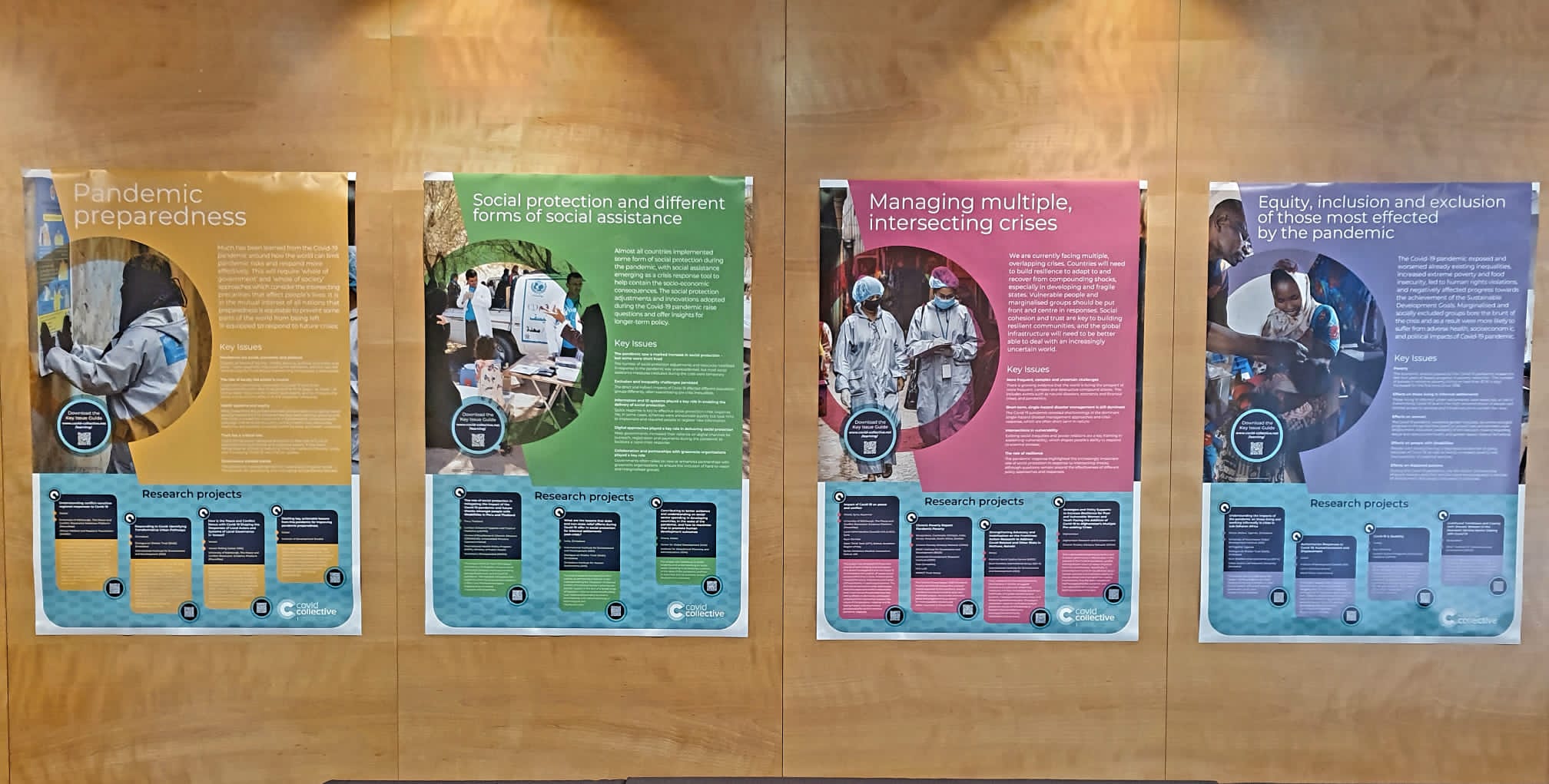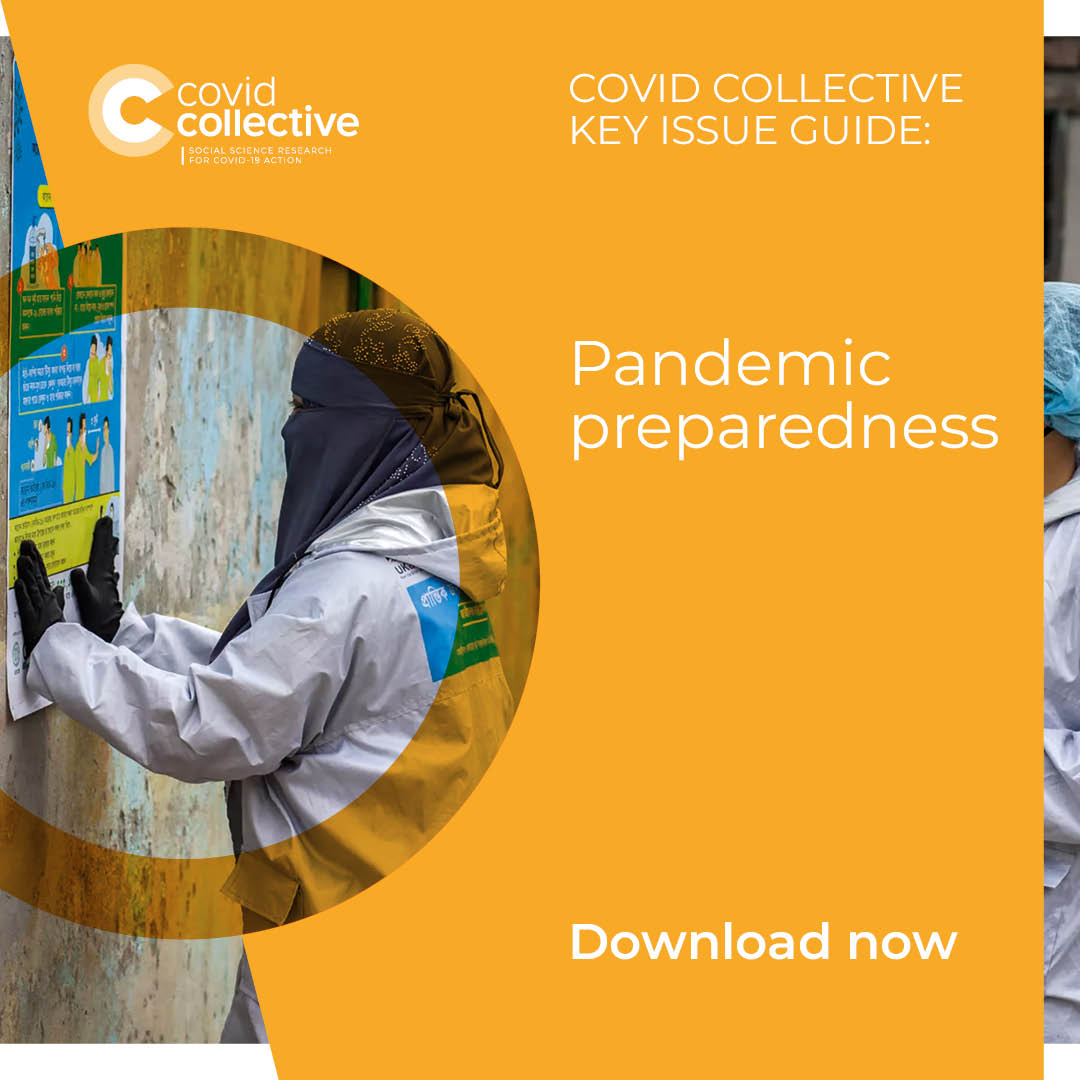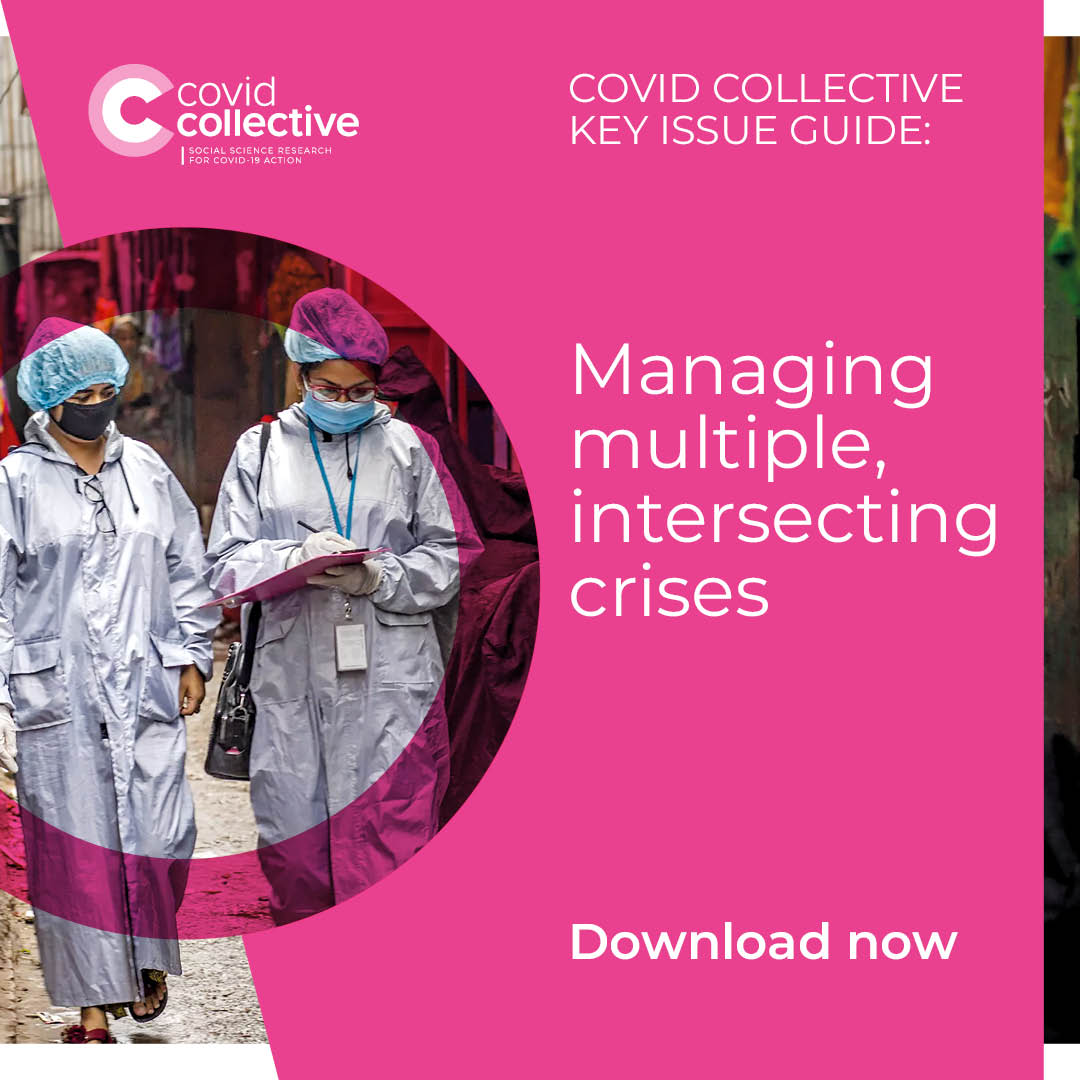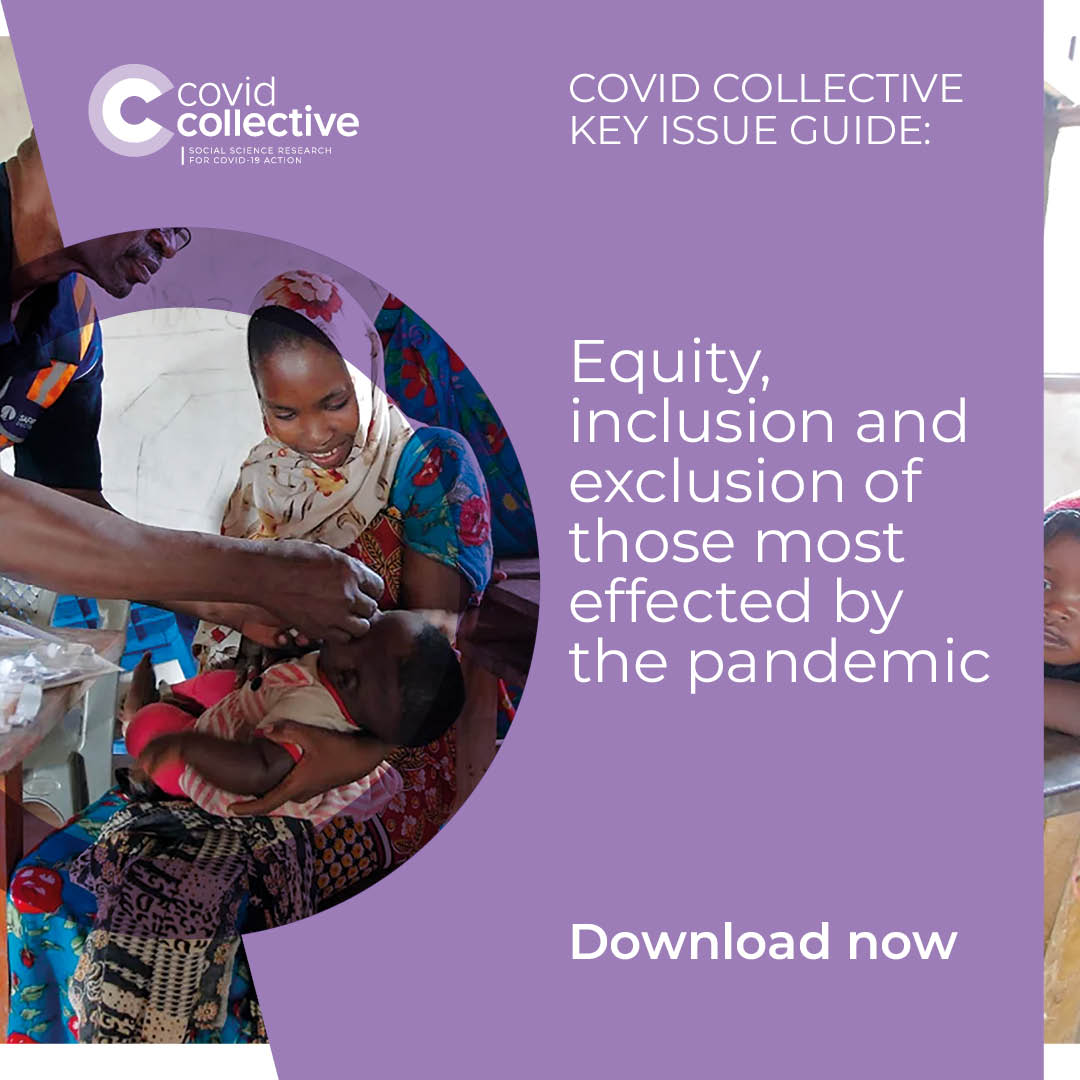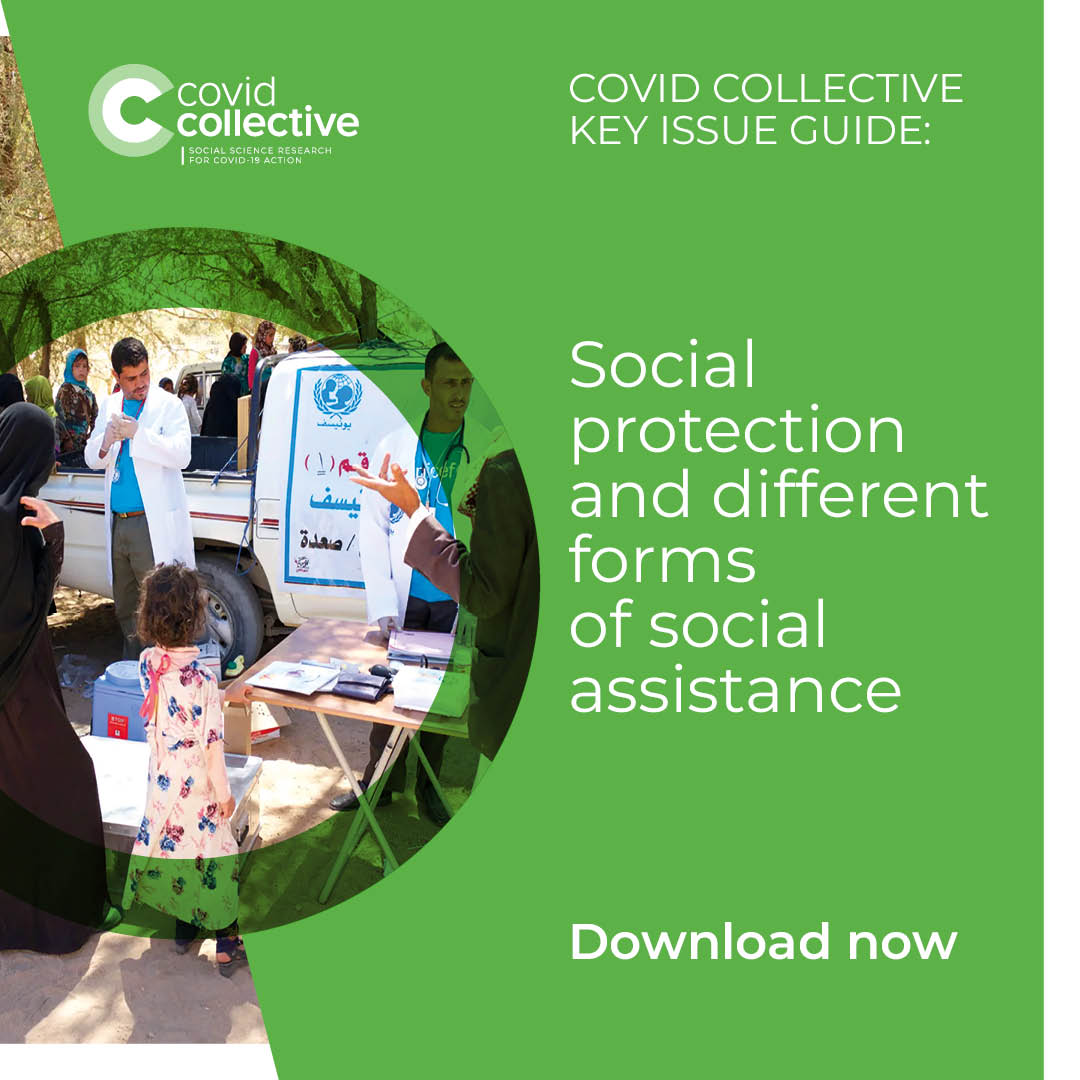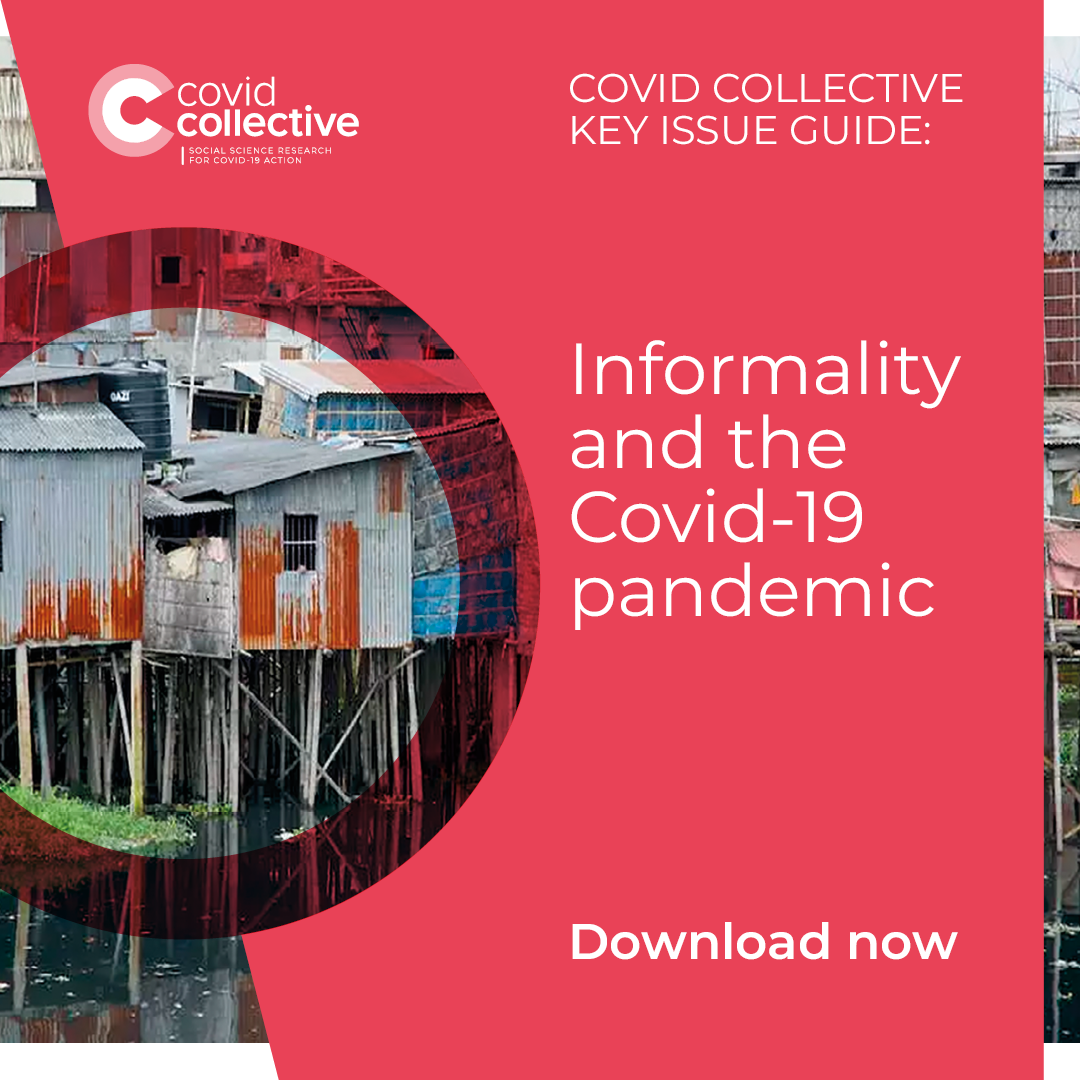Over the past two and a half years, the Covid Collective has brought together the expertise of UK and Southern based research organisations to offer a rapid social science research response to inform decision-making on some of the most pressing Covid-19 related development challenges. The research portfolio of the Covid Collective is extremely varied, spanning numerous geographical boundaries and covering on an array of drivers – conflict, climate change, economic precarities – that intersect with health challenges. With phase two drawing to a close, we took a closer look at the seven emerging themes from the research.
Pandemic Preparedness
Much has been learned from the Covid-19 pandemic around how the world can limit pandemic risks and respond more effectively. This will require ‘whole of government’ and ‘whole of society’ approaches which consider the intersecting precarities that affect people’s lives. It is in the mutual interest of all nations that preparedness is equitable to prevent some parts of the world from being left ill-equipped to respond to future crises.
Managing multiple, intersecting crises
We are currently facing multiple, overlapping crises. Countries will need to build resilience to adapt to and recover from compounding shocks, especially in developing and fragile states. Vulnerable people and marginalised groups should be put front and centre in responses. Social cohesion and trust are key to building resilient communities, and the global infrastructure will need to be better able to deal with an increasingly uncertain world.
Equity, inclusion and exclusion of those most affected by the pandemic
The Covid-19 pandemic exposed and worsened already existing inequalities, increased extreme poverty and food insecurity, led to human rights violations, and negatively affected progress towards the achievement of the Sustainable Development Goals. Marginalised and socially excluded groups bore the brunt of the crisis and as a result were more likely to suffer from adverse health, socioeconomic, and political impacts of the Covid-19 pandemic.
Social protection and different forms of social assistance
The pandemic caused widespread disruption of livelihoods and loss of income, and exposed and reinforced existing inequalities. In response, almost all countries implemented some form of social protection, with social assistance in particular emerging at the forefront as a crisis response tool to help contain the socio-economic consequences.
Impacts of the Covid-19 pandemic on decision-making, accountability and empowerment
The unpredictable, fast-moving and high-risk decision-making environment during the Covid-19 pandemic challenged policymakers around the globe. Decision-making and accountability mechanisms that are fit-for-purpose in today’s turbulent world require more effective coordination across governance levels and sectors, and international borders.
Informality and the Covid-19 pandemic
People living in poor and densely populated informal settlements struggled due to a lack of space, water, resources, and services, and were reliant on informal work which was severely affected by Covid-19 containment measures such as lockdowns. Official responses were often inadequate and, as a result many informal communities had to rely on their own limited resources and support networks to respond to the pandemic.
Data, knowledge and information
Significant amounts of data and evidence already exist, but challenges hinder their utilisation for equitable recovery and sustainable futures. Knowledge sharing between stakeholders remains limited, with community-level actors being particularly excluded. This has led to wasted or duplicated data, damaged trust and ultimately hampered effective action.
